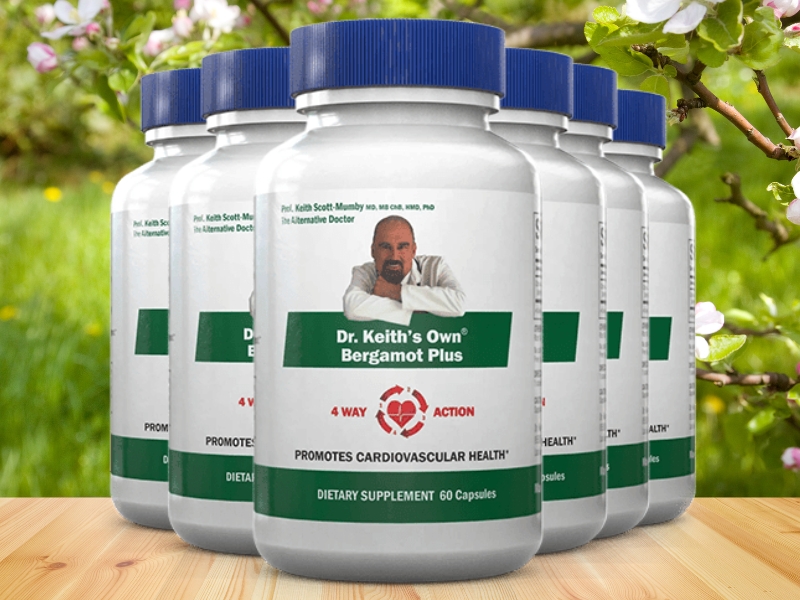So here we are again. Another supplement promising to fix your cholesterol, support your heart, and basically turn you into a wellness magazine cover model, all from some citrus extract. Bergamot Plus has been flooding social media feeds with testimonials that sound almost too perfect, which is exactly when my BS detector starts beeping. Look, I’m not saying it’s garbage before we even start, but I’ve seen enough “revolutionary” supplements to know that what’s marketed and what’s actually delivered are often two very different things.
What They’re Selling You
The Bergamot Plus website reads like every other supplement sales page you’ve probably seen. They’re pushing these major claims:
- “Supports healthy cholesterol levels naturally”
- “Promotes cardiovascular health”
- “Contains powerful antioxidants”
- “Clinically studied ingredients”
Now, here’s where it gets interesting (and by interesting, I mean frustrating). They lean heavily on the whole “derived from Calabrian bergamot” angle, making it sound like this specific Italian citrus fruit is some kind of miracle that modern medicine somehow overlooked for centuries. The marketing suggests you’ll see improvements in your cholesterol numbers without making other lifestyle changes, which, real talk, is a pretty bold claim that should make anyone pause.
And they’ve got testimonials. Lots of them. People are raving about their lab results improving after just weeks. Which might be true. Or might be carefully selected success stories, while dozens of “meh” results got quietly ignored.
What’s Actually Inside
Here’s what they disclose about the formula:
| Ingredient | Amount Per Serving | What It Actually Does |
|---|---|---|
| Bergamot Extract (fruit) | 1,000 mg | May help with cholesterol; some decent research exists |
| Citrus Bioflavonoids | 25 mg | Antioxidant support (pretty standard stuff) |
| Other Ingredients | Not disclosed | Fillers, capsule materials, who knows what else |
That 1,000mg of bergamot extract is actually a clinically studied dose, which is something. Studies have shown that bergamot polyphenols might help with LDL cholesterol and triglycerides, so they’re not completely making things up here. But (and this is a big but) those studies were typically done alongside dietary changes and exercise, not as a magic pill you pop while eating cheeseburgers.
The citrus bioflavonoids are fine. They’re antioxidants, they exist in lots of supplements, and they probably don’t hurt anything. But 25mg is honestly a pretty modest amount that likely isn’t moving any needles dramatically.
What bothers me is what’s not on this label. There’s no mention of standardisation percentages for the bergamot extract, which means you don’t really know how much of the active compounds (the polyphenolic fraction) you’re actually getting in each capsule. This matters because the research showing benefits uses extracts standardised to specific percentages of these active compounds. If Bergamot Plus doesn’t match those specs, you’re basically taking expensive lemon water in pill form.
The Pricing Reality Check
Let’s talk money. Because this is where things get painful:
- 1 Bottle (30-day supply): $79
- 3 Bottles: $207 ($69 per bottle)
- 6 Bottles: $354 ($59 per bottle)
So you’re looking at nearly $80 for a month’s worth of capsules that might help your cholesterol if you’re also eating better and exercising, which you could do without spending $80, by the way. The bulk pricing brings it down some, but you’re still committing hundreds of dollars upfront to something that may or may not work for your specific body chemistry.
They do offer a 90-day money-back guarantee, which sounds reassuring until you read the fine print (and there’s always fine print). You need to return the bottles, even empty ones, and you’re probably paying return shipping. Plus, most people don’t actually follow through with returns because it’s a hassle. Companies know this and count on it.
What Real Users Are Actually Saying
The reviews are… mixed. Which is honestly more believable than if they were all glowing five-star raves. Some people report seeing their cholesterol numbers improve after a few months of consistent use. Usually, people who were also making other health changes notice that pattern. Others say they felt zero difference and stopped after one bottle.
Common complaints include:
- No noticeable changes after 60+ days
- Expensive compared to basic bergamot supplements on Amazon
- Customer service is slow to respond
- Capsules are large and hard to swallow
The positive reviews mention gradual improvements in energy and lab work, but again, these are almost always combined with diet modifications. Nobody’s eating Taco Bell daily and magically getting perfect cholesterol from Bergamot Plus alone.
The Verdict: Should You Actually Try This?
Here’s my honest take after digging through all this. Bergamot Plus isn’t a complete scam; the main ingredient has some legitimate research behind it, and the dosage isn’t laughably low like some supplements. But it’s also incredibly overpriced for what you’re getting, and the marketing overpromises what the science actually supports.
If you’ve got high cholesterol and your doctor has mentioned trying natural supplements before medication, bergamot extract might be worth discussing with them. But you could probably find a similar bergamot supplement for half the price elsewhere without the flashy marketing. And (this is crucial) no supplement replaces actual lifestyle changes like exercise, stress management, and eating less processed garbage.
The 90-day guarantee gives you some safety net, though jumping through return hoops is annoying. If you try it, keep your expectations realistic and track your actual lab numbers, don’t just rely on how you “feel” because the placebo effect is real and powerful.
Honestly? For $79 a month, you could get a gym membership and some quality olive oil, both of which have way more proven benefits for heart health. But if you’re determined to try Bergamot Plus despite my scepticism, at least use the bulk pricing and actually commit to the full three months before deciding. Supplements don’t work overnight, no matter what the ads suggest.

